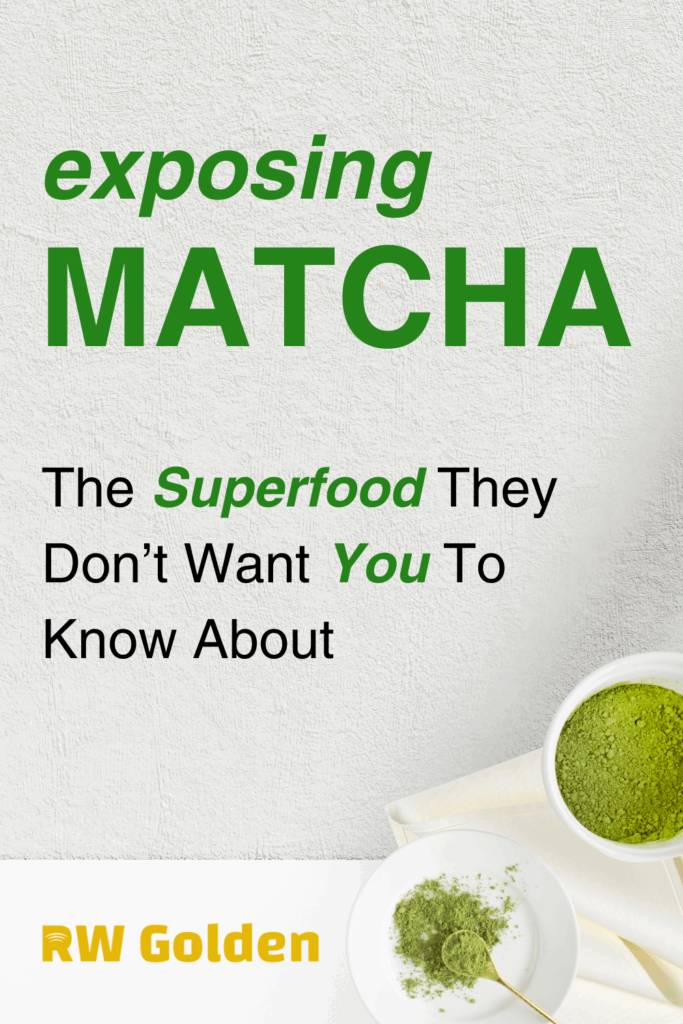Organic Matcha – Why your matcha may not be as healthy as you believe
Organic Matcha: What is the Difference and Why it Matters...
Read MoreResearch > Matcha
Matcha, the vibrant green tea powder from China and Japan, transcended traditional tea ceremonies, becoming a global health phenomenon, particularly for its relaxing yet energy-filled, anti-inflammatory benefits. Let’s explore how this ancient drink can be part of modern wellness practices.
There are several compounds in matcha that research suggests may benefit human health:
Here’s how you can make matcha a part of your anti-inflammatory lifestyle:
While matcha has promising anti-inflammatory benefits:
The centuries-old tradition of drinking matcha is echoed by emerging science that suggests these ingredients may be able to help reduce inflammation in a tasty way. Just because matcha is excellent for inflammation does not mean it is the be-all and end-all. It tends to be most effective when combined with a balanced lifestyle.
Explore our Organic Matcha, designed with purity and health in mind, perfect for those looking to naturally combat inflammation.
Note on Sources: When looking into matcha’s health benefits:
[^1]: Chacko, S. M., et al. (2010). Beneficial effects of green tea: A literature review. Chinese Medicine, 5(13).
[^2]: Unno, K., et al. (2018). Anti-stress effects of drinking green tea with lowered caffeine and enriched theanine, epigallocatechin and arginine on psychosocial stress induced adrenal hypertrophy in mice. Phytomedicine, 42, 136-141.
[^3]: Lin, Y., et al. (2018). Effects of matcha green tea powder on metabolic syndrome in high-fat-diet-induced obese mice. Journal of Nutritional Science and Vitaminology, 64(6), 432-440.
[^4]: Suzuki, Y., et al. (2016). Green tea catechin consumption enhances exercise-induced abdominal fat loss in overweight and obese adults. Journal of Nutrition, 146(9), 1677-1684.
[^5]: Ahmed, S., et al. (2016). Regulation of interleukin-1beta-induced chemokine production and matrix metalloproteinase 2 activation by epigallocatechin-3-gallate in rheumatoid arthritis synovial fibroblasts. Arthritis Research & Therapy, 18(1), 238.
[^6]: Kim, H. R., et al. (2014). Green tea protects against ethanol-induced inflammation in rat liver: An electron microscopic study. Journal of Nutrition and Health, 47(2), 97-105.
[^7]: Yang, C. S., et al. (2011). Cancer prevention by tea: Animal studies, molecular mechanisms and human relevance. Nature Reviews Cancer, 11(6), 429-439.
[^8]: Saric, S., & Notay, M. (2017). Green tea for the prevention of diseases: The role of catechins in reducing oxidative stress and inflammation. Journal of the American College of Nutrition, 36(6), 473-484.
Matcha offers antioxidants—especially EGCG—that may support a healthy inflammatory response. It’s not a medical treatment, but it can complement an anti-inflammatory lifestyle.
Catechins and other antioxidants help the body manage oxidative stress. Combined with a whole-food diet, movement, sleep, and stress management, matcha can be a helpful daily habit.
Many people do well with 1–2 servings per day (about 1–2 tsp or 2–4 g total). Adjust for caffeine tolerance and speak with your clinician if you’re pregnant, nursing, or on medication.
Whisk with hot (not boiling) water—around 160–175°F (71–80°C)—and keep sweeteners modest. Water or plant milks both work; barista-style milks give a creamy texture.
Those sensitive to caffeine, with iron-absorption concerns, or on medications (such as blood thinners) should consult a healthcare professional before regular use.
•
Organic Matcha: What is the Difference and Why it Matters...
Read MoreThe 2025 Matcha Shortage If you’ve noticed matcha powder selling...
Read MoreMatcha lattes, with their vibrant green color, slightly earthly palette...
Read MoreThe Matcha Antioxidant Powerhouse – Unlock The Complete Benefit Of...
Read More